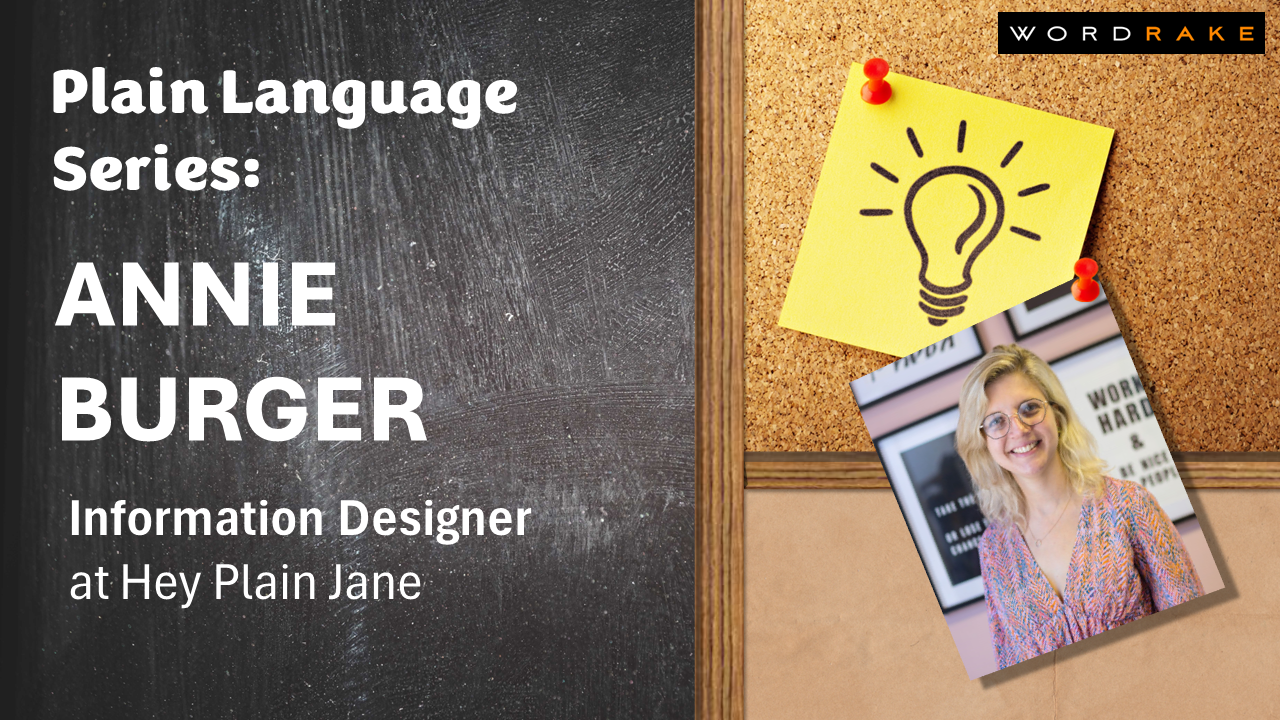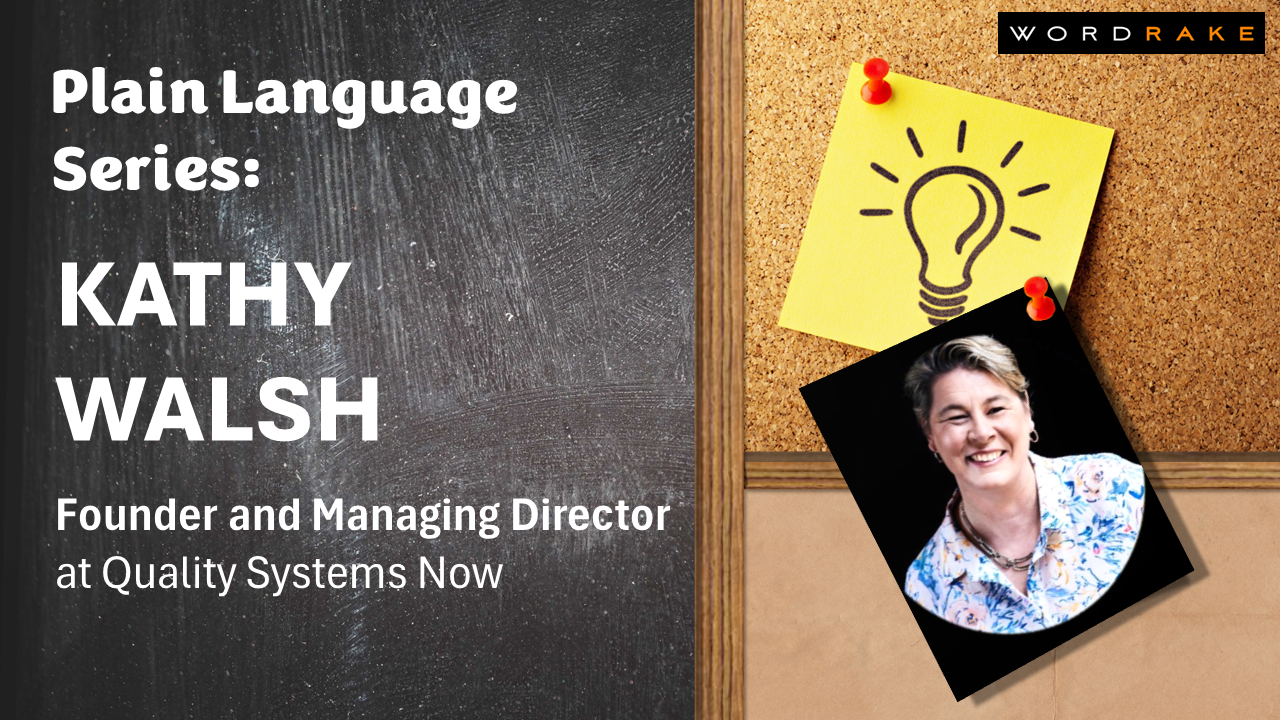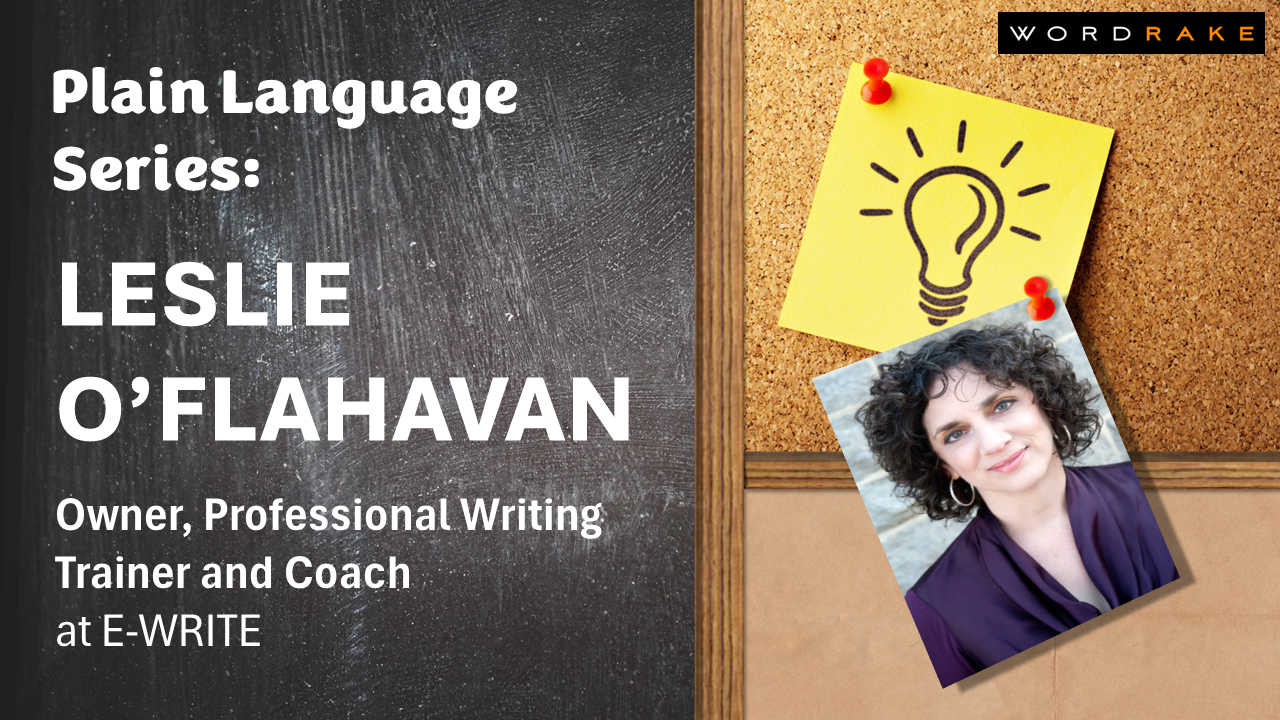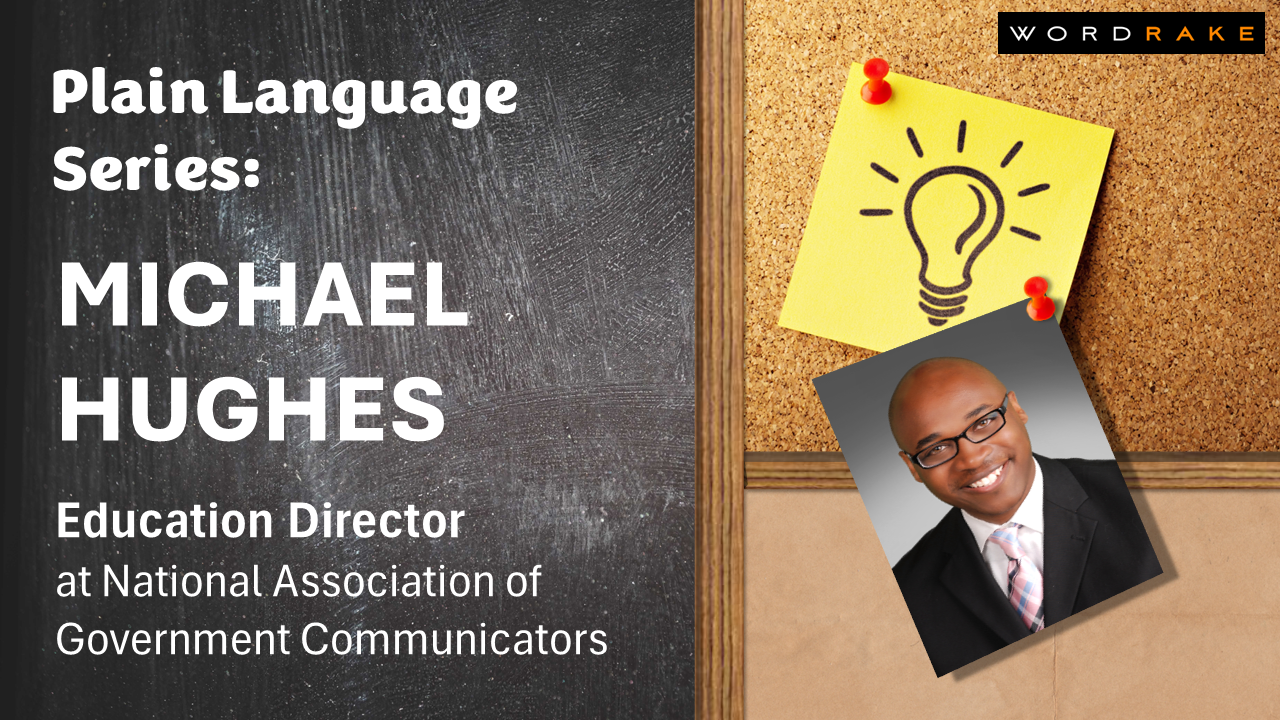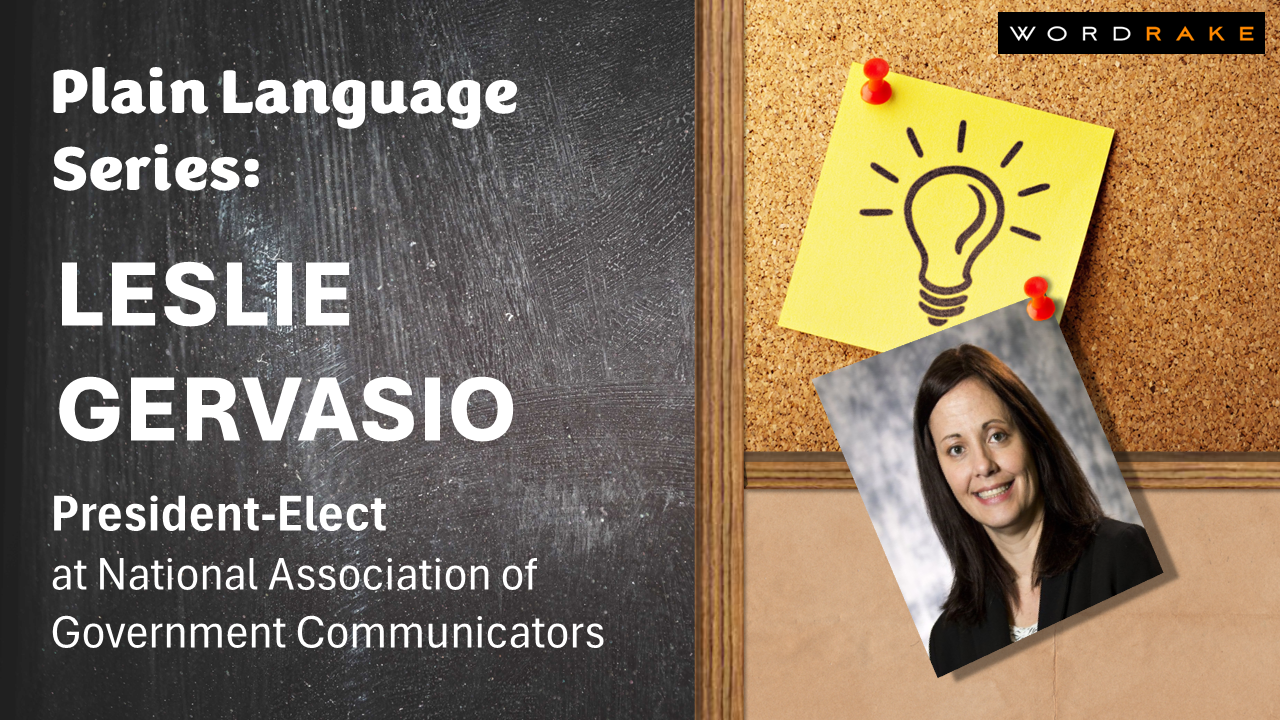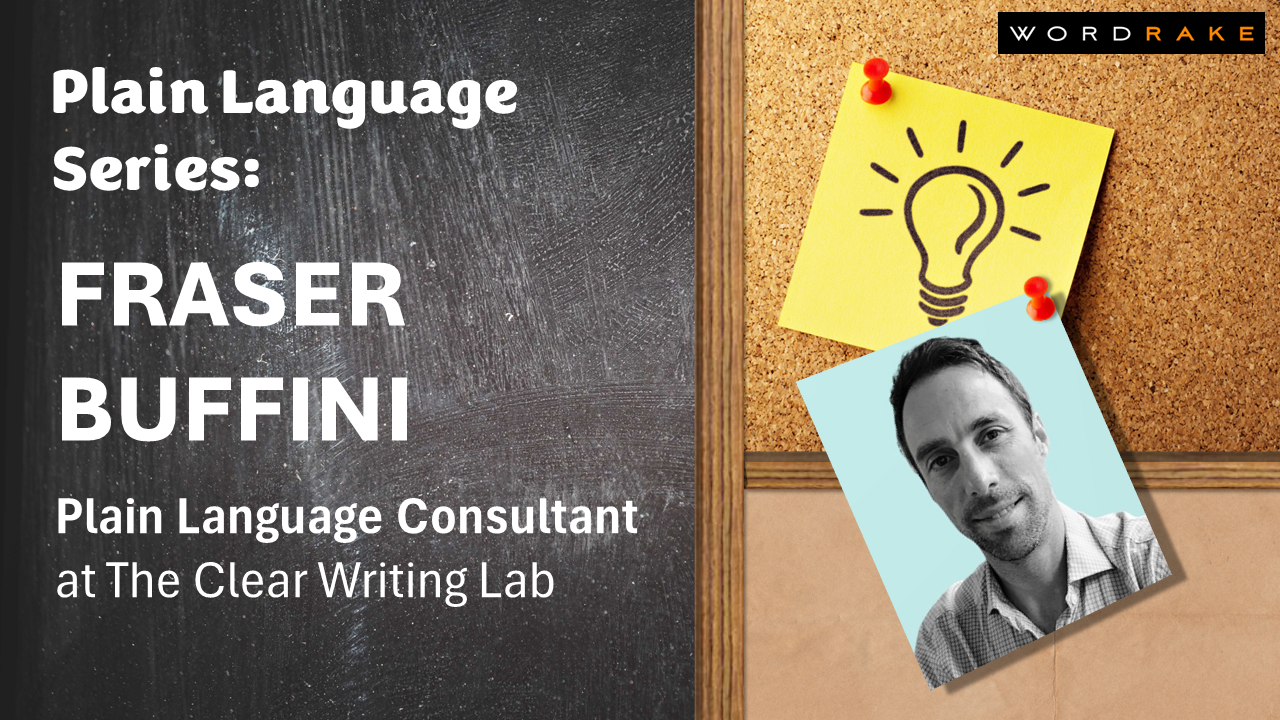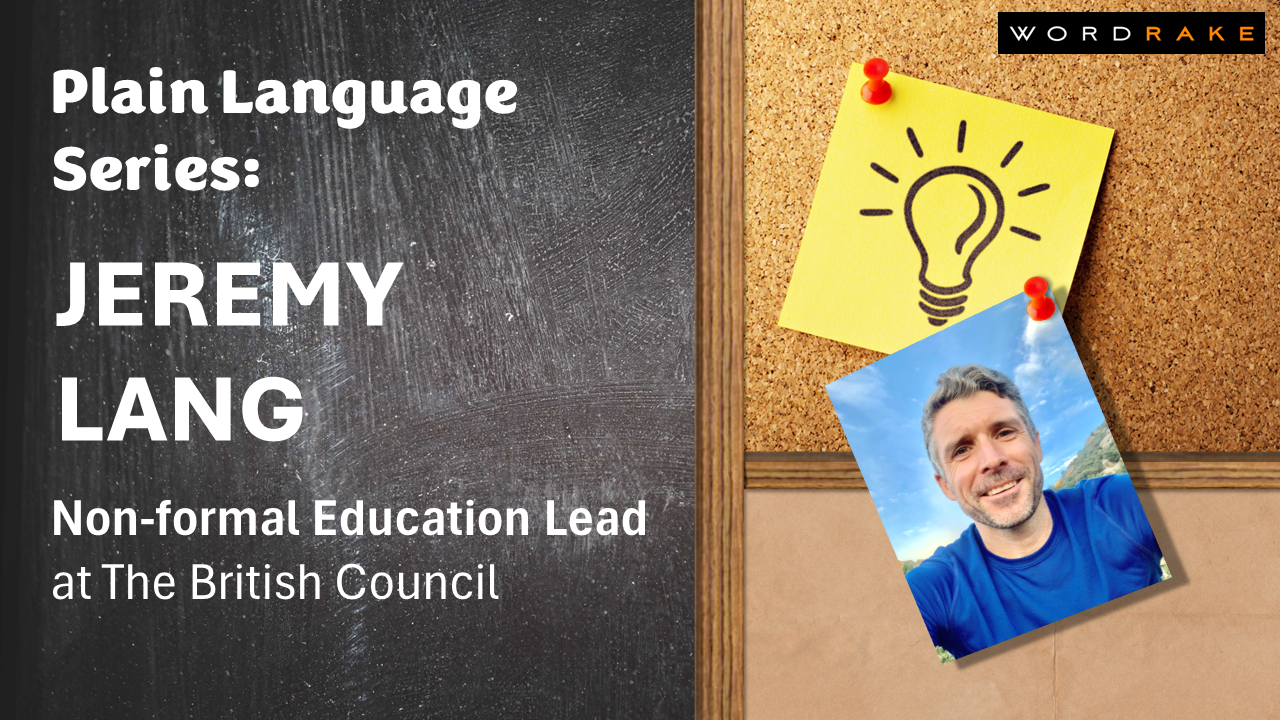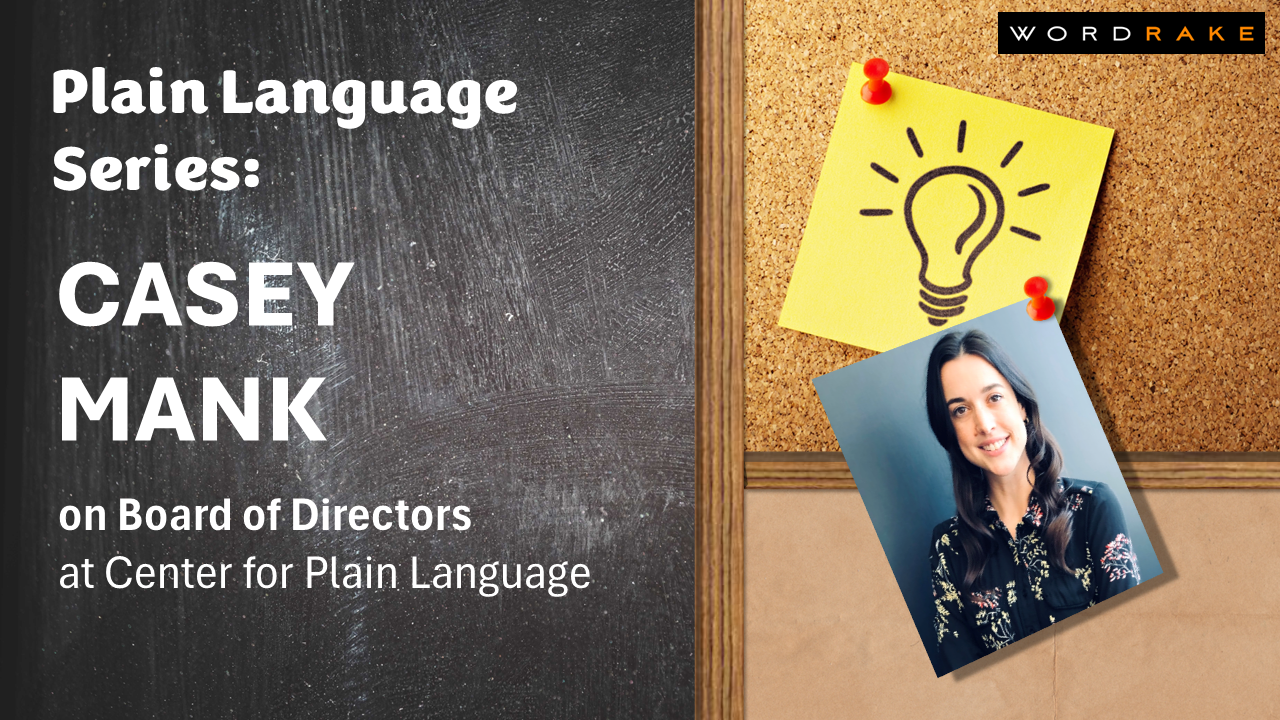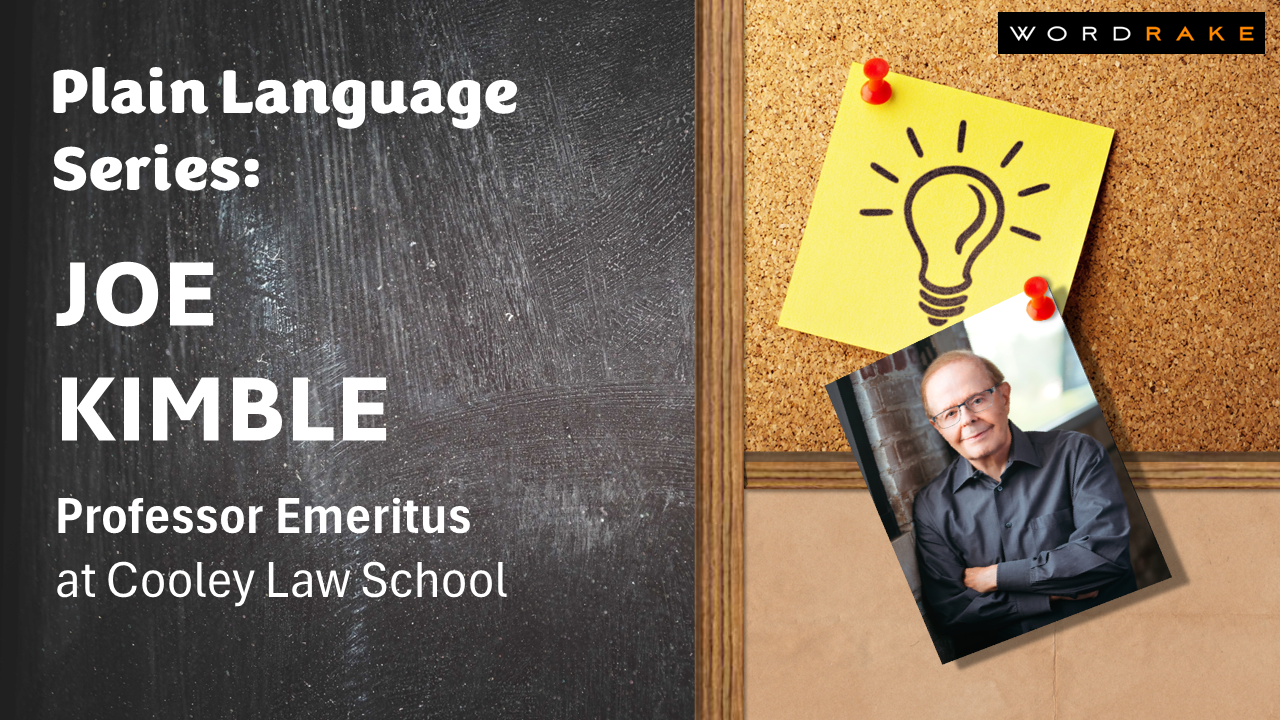Plain language isn't all about word choice and sentence structure: it's also about design. Where does information sit on a page or website? Are your graphics adding information and function, or just clutter? Information designers and plain language experts like Annie Burger are constantly thinking about how to make important content accessible and usable. She shares her experience with creating clear content with us for International Plain Language Day.
What is your role and how is it connected to plain language?
I am an information designer and a plain language practitioner at Hey Plain Jane. Basically, we help create clear communication and use any means to achieve that, including words and visuals. I am also a postdoctoral fellow at Stellenbosch University in South Africa. In my research I focus on plain language and how it is experienced in the real world.
Continue reading
